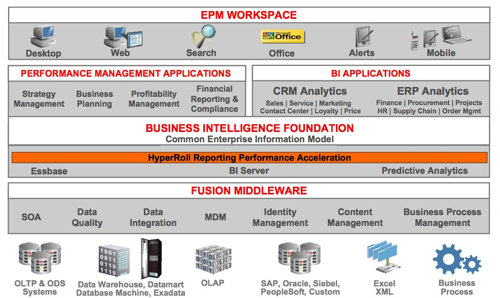Oracle Buys (Bits Of) Hyperroll
The news hit the wires last night that Oracle were buying (certain assets of) Hyperroll, a technology company out of Israel with a head office in the USA. Hyperroll have been around for as long as I've been in Oracle BI consulting, and I knew them originally as offering an aggregation layer on top of Oracle Express (back in the pre-Oracle OLAP, pre-Compression days) that sped up cube rollups. According to Edward Roske they offered something similar to Essbase, until Hyperion brought out something suspiciously similar that became the Aggregate Storage Option. The introduction of ASO by Hyperion led to a patent infringement law suit that was in the end settled out of court, but that led to technology sharing and an investment in Hyperroll by Hyperion, which is probably where the germ of this deal came from.
These days, Hyperroll focused more on aggregating relational data sources, and branched out in to complementary areas such as real-time loading of financial management applications. From looking at the various press releases and FAQs, it looks like Oracle plan to position Hyperroll in the BI Foundation Layer within their EPM product stack, speeding up relational and OLAP queries and presumably supporting trickle-feed updates to their EPM applications.

More details can be found in the press release, FAQ and in this set of slides.